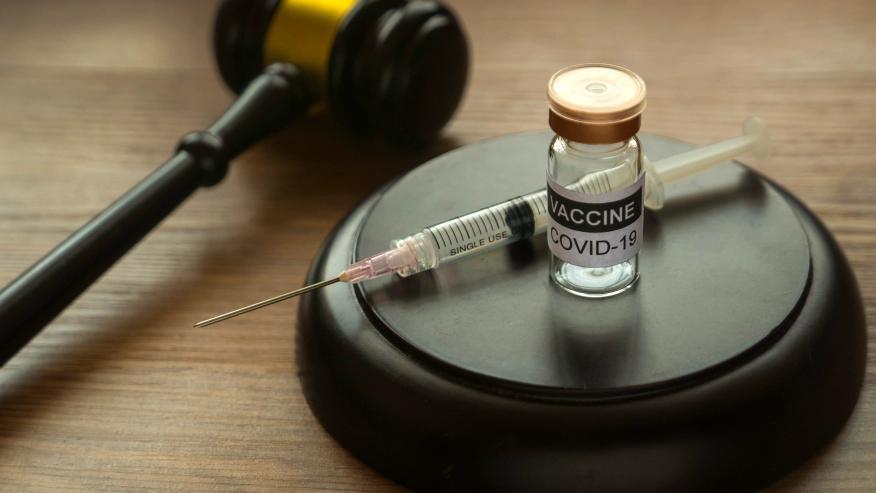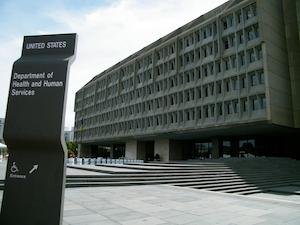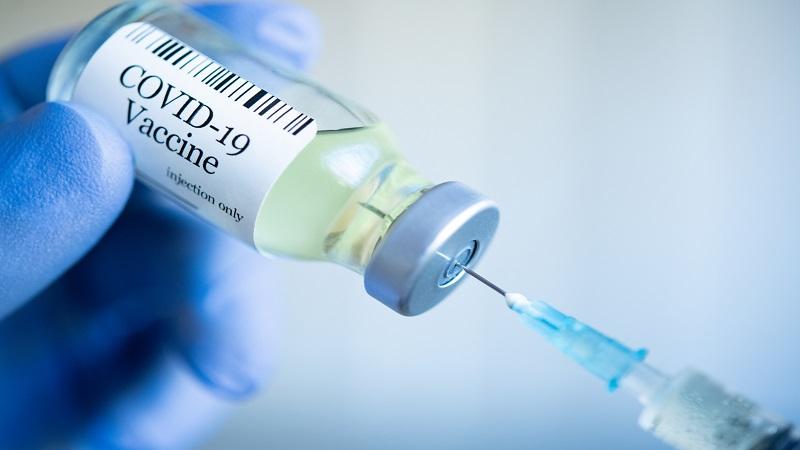CICP vs. VICP: What Is the CICP Program? And How Does It Differ From the VICP?
By: John J. McMahon, for Widman Law Firm
Injured by the COVID-19 vaccine? Call us today to find out how we can file your claim for compensation.

If you’re even slightly familiar with the workings of vaccine court, then you probably know about the VICP, or Vaccine Injury Compensation Program: the program established in 1988 to compensate individuals and families of individuals injured by recommended vaccines. You might be shocked to learn, however, that the VICP does not cover some crucial inoculations, including the coronavirus vaccine.
While the VICP covers routinely-administered immunizations, such as the flu shot or the MMR vaccine, it does not cover vaccines authorized as emergency countermeasures like the COVID-19 injection. These vaccines are instead covered under a different program, called the CICP: the Countermeasures Injury Compensation Program. But what is the CICP, and how does it differ from the VICP?
Origins
In the 1970s and 80s, controversy surrounded the DPT (diphtheria, pertussis, and tetanus) vaccine, a shot frequently administered to children. This controversy was the result of claims that the pertussis component of the vaccine, in rare cases, led to permanent brain damage.
Although doctors continued to recommend the DPT vaccine for its effectiveness, as well as the low rate of brain injury claims related to the injection (one case per 310,000 immunizations), negative publicity led to a drop in the vaccination rate in several countries, including the United States. This falling immunization rate, combined with a spike in vaccine-related lawsuits, led many manufacturers to stop producing the vaccine entirely. The price of the DPT vaccine then increased dramatically, which led healthcare providers to stop covering the shot. By the end of 1985, only one manufacturer remained in the U.S.
In response to this, congress passed the National Childhood Vaccine Injury Act (NCVIA) in 1986, establishing a federal system to compensate victims of vaccine injury as well as to shield vaccine manufacturers from liability. This system is known as the VICP.

The origins of the CICP are a little different; whereas the VICP was formed reactively, the CICP was formed proactively.
After September 11th, 2001, the threat of a physical terror attack in the States was very real. What people did not expect, however, was that just one week later, envelopes containing anthrax powder would be mailed to various news media and political offices across the country.
While the true nature of the anthrax attacks would not be understood until later in the decade, these attacks made lawmakers aware of the growing threat of terror attacks carried out in unconventional ways. This, in turn, made medical companies consider the possibility of biological attacks, for which they might need to develop countermeasures in a time of emergency. But these expedited medicines, medical devices and vaccines, having spent less time in trials, would have an increased risk of side effects – and as it stood then and still today, the VICP only protected manufacturers for routine inoculations, not emergency countermeasures.
Fearing a repeat of the 1980s lawsuits against the DPT vaccine, manufacturers lobbied in Washington for special liability protections for emergency countermeasures. That lobbying was successful, and in 2005, the Public Readiness and Emergency Preparedness (PREP) Act was passed by Congress and signed into law by President George W. Bush. The act gave drug makers immunity from actions related to the manufacture, testing, development, distribution, administration and use of medical countermeasures against chemical, biological, radiological and nuclear agents of terrorism, as well as epidemics and pandemics.
Just as the National Childhood Vaccine Injury Act established the VICP, the PREP Act established the CICP: the actual system by which injured parties could be compensated for damages sustained as a result of emergency countermeasures. But the PREP Act and the CICP were not without controversy.
Senator Edward Kennedy, for one, demanded the repeal of the PREP Act legislation, and asserted that the liability provisions heavily favored the drug industry. He went on to say that the bill makes it “essentially impossible” for the injured to sue for damages. Kennedy further noted that one of the companies that lobbied for the PREP Act, Sanofi Pasteur, was under FDA investigation for its meningococcal vaccine being linked to at least five cases of GBS (Guillain–Barré syndrome).
In addition to Senator Kennedy’s opposition, multiple consumers’ rights and first responders organizations opposed the PREP Act, with one such organization taking out full-page ads in various publications against the Act. Other opponents argued that because the Act delegates considerable power to the executive branch of government, the PREP Act violates fundamental principles of the U.S. Constitution.
Program Differences
The CICP is set apart from the VICP in a number of ways. Firstly, funding: the VICP is funded by a tax of 75 cents taken out of the purchase of every vaccine included on the vaccine injury table. Conversely, the CICP is funded through congressional appropriations: laws of Congress which allow an agency to make payments from the U.S. Treasury. In other words, vaccine purchases pay for the VICP, while the U.S. Government bankrolls the CICP.

The claims filing process also differs between programs. To be compensated by the VICP, you or a lawyer must prepare and file a petition with the U.S. Court of Federal Claims, and send a copy to the Department of Health and Human Services. Because this is a legal process, and the petition is a legal document, most people choose to hire a lawyer to represent them. An attorney from the Department of Justice makes a report using medical findings from the HHS. That report is then reviewed by a “special master” and, usually after a hearing in which both sides are able to make a case, a decision is made regarding compensation. The VICP also pays all attorney’s fees, and in most cases, will pay those fees even if the petitioner’s claim for compensation is denied.
Filing a claim in the CICP, on the other hand, is not a legal process. In order to file a claim in the CICP, one must complete a Request for Benefits package and submit that package to the CICP within the HHS. Submitted packages are individually reviewed by medical staff to determine the claimant’s eligibility for benefits. The CICP itself will then make a determination about compensation, bypassing court hearings entirely. While not a legal process, it’s still recommended to proceed with an experienced attorney who can navigate the program. Unlike the VICP, however, the CICP does not pay for or reimburse the claimant’s attorney’s fees, if the claimant chooses to retain one.
Petitioners have a statute of limitations of three years from the first onset of symptoms after a vaccination to file a claim in the VICP. The CICP has a much stricter statute of limitations: claims must be filed within one year of the administration of the countermeasure. This gives the claimant a much narrower window within which to seek compensation; this, combined with the fact many emergency countermeasure-injured individuals are unaware of the CICP, means that many will inevitably go without due compensation.
Finally, the two programs also differ in what kinds of benefits are awarded to injured parties. For a vaccine injury: the VICP may pay for lost wages as a result of the injury, a maximum of $250,000 for projected pain and suffering, and attorney’s fees if the petitioner hired a lawyer, or legal costs if the petitioner elected to represent themselves. The VICP may also pay “a reasonable amount for past and future non-reimbursable medical, custodial care, and rehabilitation costs, and related expenses”; this amount is uncapped and can vary based on each petitioner’s individual needs. For a vaccine death, the benefit is capped at $250,000 for the estate of the deceased, as well as legal fees or legal costs.
CICP payouts in the case of an injury from a covered countermeasure can be up to $379,000 for lost wages (capped at $50,000 per year) plus a reimbursement of medical expenses related to the injury. As stated before, attorneys fees are not reimbursable under the CICP. Further, there is also no pain and suffering award. In the event of a death as a result of a covered countermeasure, the maximum amount allowed under the CICP is higher than that of the VICP at $370,376.
Differences in Coverage
The two programs also differ in what can be claimed under them, and what they will compensate for.
Vaccines covered under the VICP:
- Diphtheria (e.g., DTP, DTaP, Tdap, DT, Td, TT)
- Haemophilus influenza type b polysaccharide conjugate vaccines (e.g., Hib)
- Hepatitis A (e.g., HAV)
- Hepatitis B (e.g., HBV)
- Human papillomavirus (e.g., HPV)
- Seasonal influenza (e.g., Flu)
- Measles (e.g., MMR)
- Mumps (e.g., MMR, MR, M)
- Meningococcal (e.g., MCV4, MPSV4, MenB-FHbp, MenB-4C)
- Pertussis (e.g., DTP, DTaP, Tdap)
- Pneumococcal conjugate (e.g., PCV)
- Polio (e.g., OPV or IPV)
- Rotavirus (e.g., RV)
- Rubella (e.g., MMR, MR, R)
- Tetanus (e.g., Td)
- Varicella (e.g., VAR)
Because the CICP encompasses damages caused by countermeasures against not only pandemic illnesses but also biological, chemical, and radiological attacks, the program is not limited to vaccines.
Countermeasures against the following are covered under the CICP:
- Acute Radiation Syndrome
- Anthrax
- Botulinum Toxin
- COVID-19
- Ebola
- Marburg
- Nerve Agents and Certain Insecticides (Organophophorus and/or Carbamate)
- Pandemic Influenza
- Smallpox and other orthopoxviruses (e.g., mpox)
- Zika
Program Statistics
Finally, the rates at which each program finds injuries to be compensable, the amount compensated for injuries, and other figures also vary significantly.
VICP statistics:
- Out of a total of 21,220 petitions adjudicated in the VICP from 1988 to 2021, 9,070 were compensated (42.7%), and 12,150 were dismissed (57.3%);
- On average, it takes 2 to 3 years to receive a judgment on a filed petition;
- From its inclusion in the VICP in 2006 to 2019, the most common vaccine in the VICP was the flu shot, which accounted for 5,407 out of 8,941 total decisions made by the program in that time frame (60.47%). The next most common vaccine in the program during that time was the Tdap (7.7% of decisions), followed by the HPV vaccine (4.4%);
- The most common vaccine-related injury in the VICP is SIRVA (Shoulder Injury Related to Vaccine Administration);
- The VICP has paid over $4.4 billion in awards since its establishment in 1988. From 2010 to 2019, the VICP has awarded an average of $209.8 million per year in compensation. In 2020, the average award per petitioner was $254,612.64.
Unfortunately, less data is available for the CICP due to its relative dormancy until the widespread application of COVID-19 countermeasures in late 2020 – early 2021.
CICP statistics:
- As of 2023, the total number of claims filed in the CICP is 11,708. Of that number, 11,196 (95.6%) have been COVID-19 countermeasure-related;
- As of February 2023, just 1,048 decisions have been made on CICP claims, while only 59 (5.63%) of those claims were deemed eligible for compensation. 543 (51.8%) of the total decisions made by the CICP have been related to COVID-19, and 524 of those 543 claims have been denied;
- However, only 88 (16.2%) of those claims were denied because the burden of proof was not met; the other 83.8% of claims were rejected because the claimant missed the filing deadline, did not submit the requested medical paperwork, or claimed an injury from a countermeasure not covered by the CICP or otherwise not specified;
- The majority of COVID-19 countermeasure claims in the CICP have been COVID-19 vaccine-related. The most common specified injury claimed to have been caused by the COVID-19 vaccine is death, with 641 claims;
- Among the unspecified injury claims, 1,133 are labeled “Not Specified”, 565 are labeled “Vaccine Reaction”, and 109 are labeled “To Be Determined”;
- While comprehensive data regarding compensation granted by the CICP doesn’t yet exist, as of 2021, the program had paid out 29 claims, amounting to $6 million in compensation and averaging $206,896 per claim.
Will the COVID-19 Vaccine Be Moved to the VICP?
For those injured by the COVID shot, but who feel too discouraged to file a claim in the CICP because of the program’s strict statute of limitations, potential attorney fees, or a perceived unlikelihood to receive compensation, another option may soon become available.
The CICP only covers emergency countermeasures. That is to say, the public health emergency that the countermeasures are designed to combat must continue to be an emergency for those countermeasures to be covered – and the clock’s ticking on COVID-19’s emergency status.

Once COVID’s public health emergency status ends, vaccine manufacturers such as Pfizer, Moderna, and others, will once again be liable for damages caused by their vaccines unless they are afforded another liability shield. Said manufacturers might not continue to produce vaccines if their risks are too high; this in all likelihood means that the coronavirus vaccine will be picked up by the VICP, to ensure COVID-19 vaccine production continues. What this means for the other coronavirus countermeasures currently covered under the CICP remains to be seen, however.
To that end, there are many COVID-19 vaccine-injured individuals who are choosing to wait until the vaccine is moved to the VICP to file a claim. If you or a loved one were injured by the coronavirus vaccine and want to be put on the waitlist for when the vaccine switches programs, contact us today.
Of course, it’s also still possible to file your COVID-19 injury claim in the CICP. Multiple law firms are saying they can’t take COVID-19 vaccine cases, or that there’s no place for legal representation in the CICP. Both of those statements are untrue – CICP claims just make those firms less money, as attorneys fees aren’t reimbursed by the program. Widman Law Firm charges a flat fee for the organizing, filing and processing of your Covid vaccine injury. Call us at (732) 829-3416 to find out more.
References:
Wikipedia
Health Resources and Services Administration (HRSA)
National Library of Medicine, National Center for Biotechnology Information
Congressional Research Service (CRS)
The New York Times




